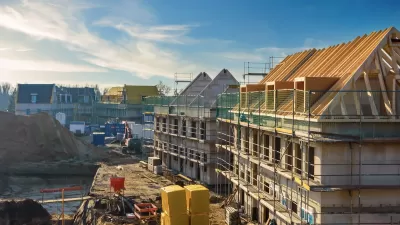Efforts to regulate the use of drones within the United States have consisted entirely of banning their use, rather than taking advantage of their utility. Yet an alternative approach does exist, relying on municipal zoning ordinances.

Efforts to regulate the use of drones within the United States have consisted entirely of banning their use, rather than taking advantage of their utility. Yet looking at historical precedent, alternatives are easily discovered.
When automobiles first became commonplace, it took a few years for regulations to catch up to ensure the safety the public, drivers, manufacturers, and the natural environment. It remains a work in progress. Fortunately at no point did a government completely ban the use of automobiles, as over time the technology advanced parallel to the growth of traffic laws and - though not perfect - a highly effective transportation system developed throughout the world.
Unfortunately, the same attitude as not been taken regarding unmanned aerial vehicles (UAVS). Although it is unclear what government institution has the right to regulate their use, countless cities and national governments have outright banned the use of a technology in its infancy. Yet a better strategy exists, by developing zoning laws for airspace, that vary according to the interests of the local community and the broader public good.
FULL STORY: The Future of Urban Planning: Zoning for Drones

Planetizen Federal Action Tracker
A weekly monitor of how Trump’s orders and actions are impacting planners and planning in America.

Maui's Vacation Rental Debate Turns Ugly
Verbal attacks, misinformation campaigns and fistfights plague a high-stakes debate to convert thousands of vacation rentals into long-term housing.

Restaurant Patios Were a Pandemic Win — Why Were They so Hard to Keep?
Social distancing requirements and changes in travel patterns prompted cities to pilot new uses for street and sidewalk space. Then it got complicated.

In California Battle of Housing vs. Environment, Housing Just Won
A new state law significantly limits the power of CEQA, an environmental review law that served as a powerful tool for blocking new development.

Boulder Eliminates Parking Minimums Citywide
Officials estimate the cost of building a single underground parking space at up to $100,000.

Orange County, Florida Adopts Largest US “Sprawl Repair” Code
The ‘Orange Code’ seeks to rectify decades of sprawl-inducing, car-oriented development.
Urban Design for Planners 1: Software Tools
This six-course series explores essential urban design concepts using open source software and equips planners with the tools they need to participate fully in the urban design process.
Planning for Universal Design
Learn the tools for implementing Universal Design in planning regulations.
Heyer Gruel & Associates PA
JM Goldson LLC
Custer County Colorado
City of Camden Redevelopment Agency
City of Astoria
Transportation Research & Education Center (TREC) at Portland State University
Jefferson Parish Government
Camden Redevelopment Agency
City of Claremont





























